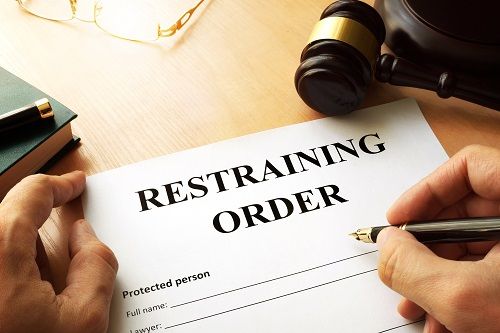How California Law Defines Domestic Violence
California Family Code defines domestic violence as abuse committed against a current or former spouse, cohabitant, partner, or close family member. Abuse includes physical harm, threats, harassment, stalking, destroying property, or any behavior meant to control or intimidate. The law recognizes actual violence as well as credible threats that create fear as grounds for protection. Knowing how the law defines domestic violence helps you determine if your circumstances fall under these statutes.
Courts in Newport Beach, including the Harbor Justice Center, review claims by looking for evidence of abuse or ongoing threats. Judges expect specific details about types of abuse, frequency, and patterns. When you bring a clear record of incidents and documentation to your filing, it strengthens your chances of securing protection or mounting an effective defense.
How Domestic Violence Charges Impact Family Law Cases
Domestic violence accusations can directly affect other areas of a family law case, especially child custody, visitation, or support. Under California law, courts may restrict custody or visitation for someone with recent findings of abuse. Judges consider all evidence to decide arrangements that best serve the child’s safety and well-being. If the court grants a restraining order, your parenting time or visitation rights may change depending on the facts of your case.
In Orange County, local courts often coordinate with agencies to create parenting plans when there is a history of domestic violence. If custody changes are considered, both parties can submit their own evidence and arguments. With sensitive cases like these, a domestic violence attorney in Newport Beach who understands Harbor Justice Center protocols can help streamline the court process and make it less stressful.
Steps to Obtain a Restraining Order in Orange County
To request a restraining order, you or your Orange County restraining order attorney will need to complete the following forms, available on the California courts website:
- Confidential CLETS Information (Form CLETS-001)
- Request for Domestic Violence Restraining Order (Form DV-100);
- Notice of Court Hearing (Form DV-109PDF); and
- Temporary Restraining Order (CLETS — TRO) (Form DV-110).
If you need more space to describe why you need the restraining order, you may also need to complete:
- Description of Abuse (Form DV-101); or
- Additional Page (Form MC-020).
If you have children with the person you’re filing against, you may need to complete forms related to child custody and support.
If you need to request spousal support or alimony, you will need an additional document.
After completing the forms, you must file them with the court, serve the opposing party, and prepare for your hearing.
There are three types of domestic violence protective orders:
- Emergency Protective Order — issued without advance notice to the other party. Takes effect immediately.
- Temporary Restraining Order (TRO) — remains in place for 15 days or until the hearing for a permanent order, whichever date is later.
- Permanent Restraining Order — issued after a court hearing where the accused can respond. Permanent orders can last up to five years and renew for additional periods.
Attorneys in Orange County can move quickly to request protective orders for you and your family and ask the court to make orders permanent when needed.
Judges in Orange County review each family’s specific circumstances, history, and evidence of threats or violence when making decisions about restraining orders. The local Harbor Justice Center often requires detailed documentation and may set court dates quickly, so organized preparation matters.
Eligibility Criteria for Restraining Orders in California
You may qualify for a restraining order in Orange County if:
- Someone abused you or threatened abuse AND
- You have one of these relationships with them: married, divorced, separated, domestic partner, have a child together, dated or used to date, lived together or used to live together OR
- You are related within the second degree of affinity or consanguinity (for example, mother, mother-in-law, child, stepchild, or legally adopted child).
If you do not have the required relationship, you may need to seek another type of order, such as a civil harassment order.
Judges look at your application and the evidence you provide—such as photos, messages, or police reports—to decide if you qualify. Filing accurate documents and supporting materials helps your case, and working with professionals familiar with Newport Beach court procedures reduces delays and errors.
Timeline for Obtaining a Restraining Order in California
A judge will usually decide within one business day (or sooner) if you receive a temporary restraining order. The TRO stays active until your court hearing, when the judge decides if a permanent order should be granted.
The process to get a domestic violence restraining order can move fast, but you may need to attend additional hearings if the judge requests more evidence or testimony. Orange County courts put safety first by prioritizing urgent cases. At the Harbor Justice Center in Newport Beach, a high volume of domestic cases can sometimes affect scheduling and hearing dates.
Understanding Restraining Orders in Newport Beach
Living in Newport Beach, you may notice that the city's calm setting can mask serious issues like domestic violence. Local resources, including the Newport Beach Police Department and the Orange County District Attorney’s Office, assist community members in need of protection. If you or someone you know faces threats or violence, learning the process for obtaining a restraining order is key.
People facing domestic violence in our community often feel trapped or overwhelmed. Getting a restraining order may seem confusing, especially during emotionally difficult times. Our team at the Burch Shepard Family Law Group guides you through each step, so you can feel supported and informed throughout your case.
You may encounter challenges unique to Newport Beach, including working with local police or handling matters at the Harbor Justice Center. Because we understand Orange County court expectations for evidence and documentation, we can help you prepare for hearings and safety planning. Thorough preparation positions you to meet your goals—whether seeking protection or defending your rights.
Many individuals worry about what may happen after filing, such as possible reaction from the accused party or concerns about ongoing child custody. We address these common questions and focus on your well-being and safety at every stage.
Whether you are in Newport Beach or another part of Orange County, our goal is to help you obtain the protection you need. If you are dealing with domestic violence allegations or false accusations, reach out to our team for informed support and guidance.
Defense Against Domestic Violence Allegations
In other situations, particularly those involving divorce or child custody disputes, one party may make accusations of violence against the other party in an attempt to gain an advantage.
When a protective order is placed against you, it can dramatically affect your child custody or visitation rights, your right to own a firearm, and in some cases, your job. People accused of domestic violence should do everything possible to avoid the court granting a protective order.
If you face allegations in Orange County, especially at the Newport Beach Harbor Justice Center, you may need to present evidence or witnesses on a short timeline. Local procedures often set strict deadlines and expect well-prepared responses. Planning ahead gives you a better chance to assert your rights and seek a fair result without delays.
In cases involving domestic violence allegations or claims of spousal abuse, the court applies discretion. Clear, fact-based arguments can help those who have been falsely accused.
Burch Shepard Family Law Group in Orange County understands how to build a convincing case and can represent you to protect your rights, your record, and your reputation.
For a consultation with a domestic violence lawyer at the Burch Shepard Family Law Group, call (949) 565-4158 or contact us online. We serve clients throughout Orange County.
FAQs
What should I bring to a restraining order hearing in Newport Beach?
Bring documents that support your case, such as messages, photos, witness statements, or police reports. You should also have identification and copies of any court filings related to your hearing.
How long does a domestic violence restraining order last in Orange County?
A permanent restraining order can last up to five years but the court may extend it. Temporary restraining orders generally last until your court hearing date.
Can a domestic violence restraining order affect my ability to see my children?
Restraining orders can impact child custody or visitation. Courts often consider children’s safety when deciding parenting plans after allegations of domestic violence arise.










